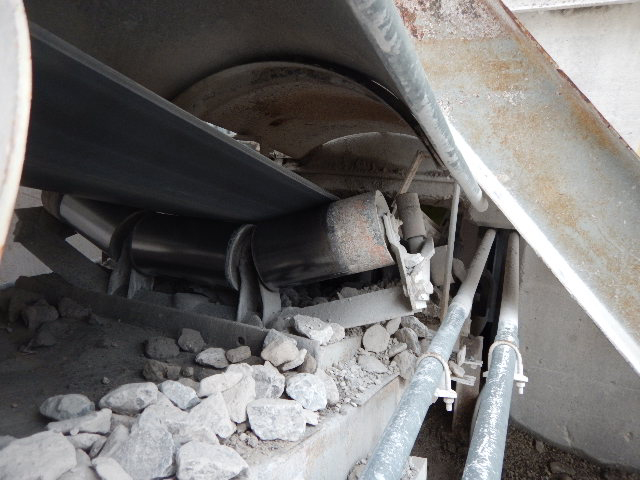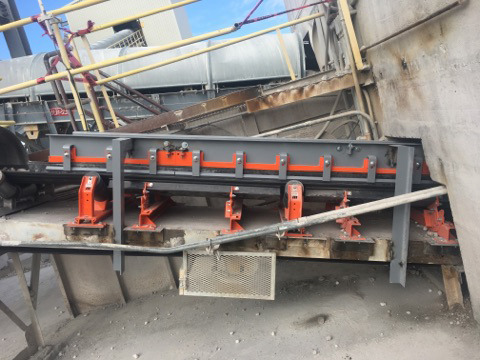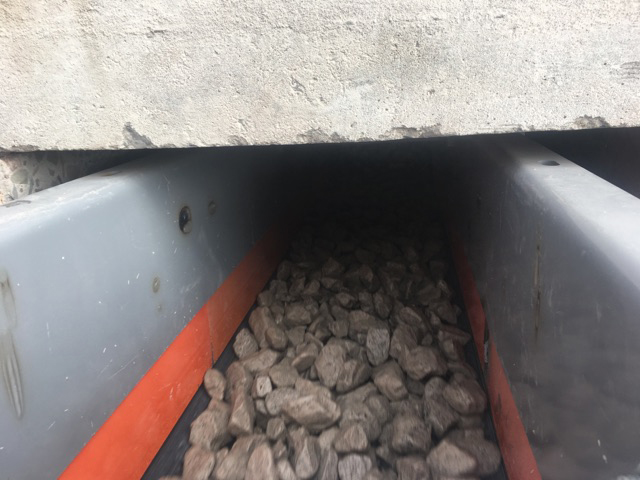| Products Used | ApronSeal™ Single Skirting , EVO® External Wear Liner , Impact Cradle HD , Slider Cradle , Trac-Mount™ Idler , ApronSeal™ Double Skirting , ApronSeal™ Double Skirting HD , ApronSeal™ Single Skirting HD , Impact Cradle LD , Impact Cradle MD |
|---|---|
| Product Types Used | Transfer Point Solutions , Belt Sealing , Belt Support , Belt Alignment , Chute Structure , Tail Protection , Transfer Point Safety Accessories |
| Industry | Aggregate |
| Customer | Graymont Superior Plant |
Problem

The Graymont Superior limestone facility processes about 2,000 tons per day of limestone from quarries in Michigan, producing high-calcium quicklime to serve the upper Midwestern states and Central Canada. The plant's incline belt was spilling product at the transfer point, particularly where the trough angle increased from 20° to 35°. Cleanup required approx. 6 hours of labor time per ton, at an estimated cost of more than $200,000 annually when including labor and lost productivity. Lost material is thought to have added another $50,000+ to that figure. Further, personnel were introduced to potential risk from having to work around the moving conveyor.
Solution

Martin Engineering technicians evaluated the situation and determined that the belt lacked adequate support and effective sealing as it traveled the very short distance through the 12-foot transfer point. The transition to 35° disrupted the load and created fugitive material. To address the issue, they removed the existing chute wall, skirting and idlers, and lengthened the transfer point by 4 feet. The techs then installed 3 Martin® Track Mounted Idlers as well as one Martin® Impact Cradle, 2 Martin® Slider Cradles and a Martin® Transition Track-Mounted Idler. These were followed by a modular chute wall assembly with a tail sealing box, EVO® Wear Liner retrofit kits and Martin® ApronSeal Skirting.
Result

Having proper belt support has greatly stabilized the load, and the new chute wall, wear liner and apron seal are able to fully contain the material flow throughout the longer transfer point. The load is centered and transitions smoothly to the deeper trough angle. Spillage has been eliminated, improving the operation's cost-effectiveness and safety, allowing maintenance staff to concentrate on other activities. "There's no more spillage to clean up at this transfer point," said a Graymont spokesperson. "We planning on having Martin Engineering install a similar system on our west belt."